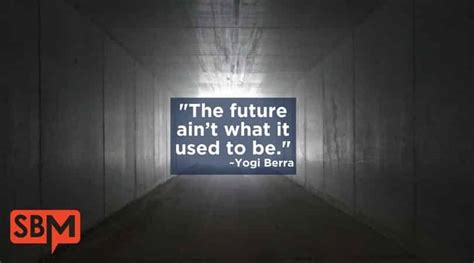”GRACE” IN THE NETIZEN WORLD
“That which is now already has been, and that which is to be already has been; and God seeks that which has passed by (so that history repeats itself).”
Ecclesiastes 3:15 (Amplified)
“A worldview is something that everybody has … Most people don’t even realize it, but essentially it’s just the decision-making filter that we use. It’s the intellectual, emotional, and spiritual filter that helps us to understand and interpret and respond to every reality that we experience.”
Dr. George Barna
When my sister went through papers at the house several days ago, following the funerals of both my mom and dad (three months apart), she stumbled on a series of my missives (although I didn’t call them that back then) that mom had kept. They were written in 2009. Those writings, now going on a decade-and-a-half old, stemmed from the time I served as First Secretary in the U.S. Embassy in Singapore. Since I was by myself, I had time to think about, and write about, a number of topics, mostly spiritual. A handful of you may have received these dated writings. For me, the old missives are treasured gems from the past. They provide insights into those cherished beliefs I still cling to; at the same time, they are reminders of how many things have changed in the interim in the world around us.
I offer them below in their original wording. When I want to add a parenthetical note, (I will insert these thoughts in the text in bold wording.)
As long as I can remember, I have been fascinated by the future. My curiosity for future things includes the whole spectrum of human efforts to figure out the world that lies over the horizon. When I was studying the Chinese language years ago (during my military service), I was told—whether true or not it makes a valuable point—that the Chinese (linguistically and perceptually) found it easy to express what is happening now and what has happened in the past, but it took hundreds of years for them to develop a linguistic device to express things in the future tense. Until recently, the Chinese have been far more comfortable looking backward rather than forward for their cultural models; this concept is due, in part, to the idea that you can’t be absolutely sure anything in the future will actually happen. Our western worldviews, with linguistic structures now reinforced by the past five centuries of forward-looking thinking, are far more confident in the future.
As God has been showing me some aspects of His grace here in Singapore, I am only beginning to understand that the physical dimension of time spanning past to future is but a present-tense continuum according to God’s spiritual wristwatch. The author of the Bible verse mentioned previously, from the book of Ecclesiastes—writing under the divine breath-inspired guidance of the Holy Spirit—had an inkling of this spiritual truth.
Last weekend, I was thinking about the future—specifically the role of God’s grace in the future—as I boarded Bus 106 in front of my Singapore apartment to attend church services (The New Covenant Church at the “Rock”). Out of nowhere, totally unexpected, I felt God’s gentle nudge in my spirit followed by the thought “you live in a world almost completely devoid of spiritual instincts.” By now I have come accustomed to such experiences setting the stage for subsequent insights on God’s grace (the completely unmerited favor in our lives as believers by virtue of the perfect sacrifice of Jesus Christ). An understanding of how grace will operate in our futures, and the futures of our children and grandchildren, is essential for us as believers, especially as the Heavenly Father starts the process of “shaking” foundations. (This concept of God’s increasing “shaking” as we approach the end times remains one of my core beliefs). Such an understanding of God-proposed futures is impossible without the very spiritual “instincts” (wisdom, understanding and discernment) that God suggests in His Word.
Of course, the future—both in terms of the passage of physical time and over-the-horizon spiritual outcomes—belongs to our children and grandchildren.
Take my daughters Kimberly and Bethany. Many of you know them. They are both real blessings and it has been a wonderful privilege for Imogene and me to be entrusted with their upbringing. Bethany is younger by almost ten years. It occurred to me that in the year 2051 Bethany will be the same age I am now while writing this piece. Lately, I have become preoccupied with this thought. How will she—and her generation of believers—view grace from that future vantage point? It is almost certain that her world between now and the year 2051 will change far more than the world between 1948 (the year of my birth for those of you who are interested, or as mathematically challenged as I am) and 2009. (I had no idea of how much I understated, and underestimated, the changes since 2009: no smartphones or social media in the modern sense, no CRISPR, no COVID-19 pandemic, no Trump, no EVs, no Ukraine, a lesser Chinese threat—I’m sure you could add to the list).
Regarding all of this, I remember a line from Alvin Toffler’s book Future Shock that left such an impression on me years ago: each of us are born in the middle of time—in many respects the world will change more during our respective lifetimes than the entire 800 lifetimes prior to our birth! (My college students, I hope, will recognize this truth as a core concept of my approach to teaching history). There are more scientists alive right now than have lived in the entire history of mankind (with an increasing percentage of them located in the developing countries of China and India). (Today, I am not quite as sure of the following statement as I was in 2009—an estimate by the Population Reference Bureau says about 107 billion people have lived on Earth, so that in today’s world there are 15 dead persons for every living person.) Amazingly enough, there are more people alive right now than have died since man has been recording history (sometimes we also forget that as I am writing this piece, there are more “born again” believers alive and praying than the entire number of Christians that have died since the crucifixion and resurrection of Jesus Christ). And all these numbers will increase in the future barring the return of Jesus or a major pandemic (h-m-m);by the year 2050, there will be an estimated 9.2 billion people on earth.
“The future ain’t what it used to be.” (Yogi Berra)
All of us measure change by the yardstick of our own lifetimes. The first sixty years of my own life, for example, illustrates how technological developments can be used as a metric of change over one person’s lifetime. As I write here in Singapore, I am watching a flat screen color television and a program provided by a satellite signal downloaded by one of the city-state’s two cable services. When I was a child there was no color television and I can still remember seeing my first color set in a tent at the Warren County Fair in Lebanon, Ohio and listening to the old-timers argue whether this “fad” would actually catch on. A few minutes ago, I talked to someone from Washington D.C. on a Vonage voice-over system that works through my laptop computer. By some technological sleight-of-hand, I can talk on a telephone in Singapore and it is just the same as the phone being physically located at our house in Sterling, Virginia. For much of my childhood, we talked on “dial-up” telephones using a party line shared by several others. (My office at the Embassy also issued me a mobile phone and I am trying to learn the art of texting: in an extraordinary book by a Singaporean thinker Kishore Mahbubani titled The New Asian Hemisphere, the author talks about the “mobile miracle” now underway in India—where prospective telephone customers had to wait eight years for phone service in the 1970s—in December 2006 alone, seven million Indians subscribed to new mobile phones and it is estimated that by the end of next year there will be 500 million Indian phone users. (Today I can ask Google about the number of users in India: the number of smartphone users in India was estimated at over 748 million in 2020—more than twice the total U.S. population that year—with the number of smartphone users worldwide forecasted to exceed 1.5 billion users in 2040). This dramatic increase in the number of cellphones will empower the less fortunate in India and has been hailed as “the great leveler” by some Indian thinkers. If the telephones were relatively primitive technology during my childhood, then the whole notion of Internet connectiveness using personal computers was nonexistent. In fact, even the most celebrated futurists (such as Robert Heinlein in his epic masterpiece Starship Troopers) had no inkling of today’s computers.
Speaking of India, I watched a great movie at a Singapore movie theater this past weekend (here you have reserved seats and can pay extra for a special private viewing room with first-class aircraft type chairs and people providing you popcorn, snacks and drinks) (a precursor, by several years, to Alamo theaters here in the States). The movie was called Slumdog Millionaire and was fantastic. A memorable scene in the movie involves an outhouse. I know outhouses! When I was a kid, only Aunt Martha’s house in our neighborhood had a flush toilet (indoor plumbing) and a bathtub. Both my daughters have missed the “thrill” of sitting in an outhouse on a breezy winter day—where even the magazine pages are frozen stiff—or the joys of being the last family member to sit in the galvanized tub for a bath. (Mahbubani traces the date he entered the modern world to when he had his first flush toilet; even today only 15-20 percent of the total world population have flush toilets.) We pumped water by hand from a nearby well to fill the tub and heated pans of water on the stove to warm the bathwater. (I have discussed my personal experiences with outhouses, pumps and early television in a couple previous missives.)
I told someone a few weeks ago that sometimes I feel like a dinosaur and I’m seeing the snowflakes starting to fall! (I have one of my characters use a similar line in my Prawnocous Trilogy, Christian techno-thrillers set 15 years in the future; I just finished putting the finishing touches on the Epilogue yesterday and am getting ready to self-publish soon.) I remember listening to the first transistor radio in the neighborhood, the confusion and fear caused by the launch of Sputnik by the Soviets, fallout shelters, record players and vinyl discs, gasoline at 19 cents a gallon for my dad’s gas-guzzling Chrysler DeSoto (with tail fins taller than I was), sleeping on mattresses outdoors on summer nights because there was no such thing as air conditioning, unpasteurized milk, polio shots, and shopping at small, family-owned shops where the owners actually knew you by name. All the neighborhood boys played baseball in empty fields—often with right field “dead”—without adult supervision: we had to work out our own arguments and problems. In the small rural farming community where I was raised, we slept at night without locking the doors and worshipped with friends in small congregations that were linked by family connections and ice cream socials (I can still remember helping the men of our church hand-crank the homemade ice cream as well as the “brain-freeze” headaches from eating the ice cream too fast). We ate fresh produce and locally slaughtered beef and pork. My first McDonald’s hamburger cost five cents. We earned spending money during the summer school break by helping local farmers bale hay; at night, the nearby fields and pastures glittered with “lightening bugs” at dusk and, during the day, honeybees and majestic monarch butterflies fluttered in the local pastures.
Sadly, the world of my youth is gone forever.
As foreign as that world of my childhood now seems to Bethany (viewing the world through the optic of 2009), the future world to be inhabited by her children and grandchildren looking out to 2051 will differ from today’s world by several orders of magnitude. I was thinking about all this a couple days ago when I walked through the gigantic Border’s bookstore on Orchard Road here in Singapore and noticed a book about the “Net Generation.” (The last time I was in Singapore, the giant multiple-story glass-pyramid bookstore was no longer there: a victim of technological change among readers, Amazon convenience, and a change in the publishing industry. It was my favorite bookstore in all of Asia. Sigh.) The author of the book began his listing of momentous changes starting in 1997, by noting there was no Google, Facebook, YouTube, Twitter or Blackberry’s way back then (my goodness how did anybody survive before these technological necessities came along?) This book only reinforced my point that change is measured through our own life’s prism.
For Bethany’s world, change is almost certain to take place at a breathtaking pace. (In my recent missives I talk about this as “exponential change.”) In the computing realm alone (assuming we even call them computers by then—in my novels I call personal computer-like devices “telly’s” powered by a “body-net” using the body’s own electrical and chemical energy), by 2051 a handheld computer (or one embedded in your clothing, or skin or gut) will surpass the computational power of several of today’s largest and fastest supercomputers. Even today, the ordinary Cooper mini-car has more computing power than the space capsule celebrated by Ron Howard’s move The Right Stuff. The personal computer that Bethany uses (in 2009) to send e-mails to her friends, do her high school homework, or play games is a far cry from my first Apple Macintosh computer with its amazing storage capacity of 70K that our small study group used in law school for its word processing capabilities. (The same generation of computer is now in the Smithsonian Museum.) (As many of you no doubt remember, at Alice Lloyd College during the early 80’s it was “Chip” Martin—now deceased—and his heavy-box Compac computer who led the way for the rest of us on campus). In Bethany’s future world, by contrast, people will spend significant parts of lives escaping to virtual worlds, combat hacker-generated virulent computer viruses that will rival physical diseases for attention, and my grandchildren will see functional quantum computers, living bio-chips rather than silicon-based chips, and enjoy changes brought on by a maturing nanotechnology. And these are the computer-related technologies that we can anticipate as information technology fills out the bottom of the techno-pyramid. This does not count a revolutionary technology breakthrough in personal communications systems over the horizon (like the one I mention in my novel—yes, I’ve been writing it that long) that could be a real cultural “game changer.”
Changes for Bethany and her peers will be just as dramatic—if not more so—in the fields of medical treatment, transportation, energy production, artificial intelligence decision-making, environmental improvements, shopping patterns, cultural norms and even artificial life. Indeed my daughter Bethany now, and in the future, will have at least four identities: first, she belongs to the Akers family by blood; secondly, she is a citizen of the United States by geographic birth; thirdly, she is also a child of the Heavenly Kingdom and a part off the “Benjamin Generation” (a last-days’ remnant) by virtue of grace and faith in Jesus Christ; and finally, she is a “netizen” by virtue of technological lineage. (Only in recent days, through human-based “wokedness,” will her daughters Eden Grace and Emma also have to decide, fight for, their gender orientation.)
So, what will the culmination of all these changes by the time Bethany’s generation reaches my age now? Hollywood’s version of the future is usually painted in dark, somber, catastrophic (dystopian) colors and hues. One well-respected survey of the future predicts that the human species will be on the verge of a “significant extinction event” by the year 2051 and warns of severe water shortages (water will be to the 21st century what oil has been to the 20th). Many pundits and futurists predict new levels of political crises, religious conflict, economic disruptions, and an ever-widening gap between the world’s “haves” and “have-nots.” I just read a book predicting the “end of food” systems of production and supply as we know it, based in part, on the spread of future crop diseases (there is a rust fungus that is decimating crops in Africa today and threatens to spread to other parts of the world over the decades ahead (more recently it is media-based fears over upcoming wheat shortages based on weather-related factors in mid-America and the supply chain disruptions in global wheat and fertilizer stockpiles caused by Russia’s invasion of Ukraine). Is this the dismal “brave new world” that awaits Bethany, my grandchildren, and great-grandchildren?
It seems to me that when we talk about future events, technology is to the physical world what grace is to the spiritual world. (My sister would use the word mercy here.) When I was teaching college classes at Alice Lloyd College many years ago, I stumbled across a fascinating book in the college library (Charlotte Madden’s world back then). I was looking for some ideas for the Philosophy 300 class. I can still see the book in my mind’s eye (the book had a black cover and I even remember where it was located on the bookshelf—of course with the new renovations I’m sure I couldn’t find it today). At any rate, I think the book was by British theologian Malcolm Muggeridge—or perhaps a section by him in another collection—and described several ways that human-based technology was seeking to supplant (and counterfeit) God. I have never forgotten that concept. One of the areas, for example, was that man seeks to replace God as God as the Creator of life (the book’s prediction was years before Dolly the sheep, genome-based scientific breakthroughs, DNA manipulation, or today’s laboratory experiments to create human cells. (To update here the various changes in these areas since 2009 would take another entire missive). As time passes, the more clearly I can see what Muggeridge was talking about. The end point of human-based technology is to glorify the human mastery over the physical world (and eliminate any trace of God in it). This idea, by itself, could be an entire book. A man-centered, supremely confidant, amazingly complex, and technologically-rich world awaits Bethany’s generation.
For my daughter’s sake, I’m glad that’s not the end of the story …
I was mulling over the matter of how Bethany’s generation will cope with these future changes on my way to the shower one morning last week. I have been thinking about another novel—this one set in the year 2050 or so—and was, quite honestly, ready to transfer some of my thinking about the problems I anticipate will characterize the world at that time into a paragraph for this spiritual musing. Father God arrested my attention—I told my mom in a subsequent phone call that it was like God grabbed me by my spiritual lapel—and shook me out of this gloom and doom thinking about the future my daughters were walking into. “What are doing?” I sensed He said to me, “you have completely underestimated My grace.”
That was a powerful wake-up call for me.
There is a generation to come (I now call this the remnant) that God Himself will equip to meet the challenges of their age. What a wonderful revelation! I know this goes against the grain of the pessimistic futurists and human teaching from the pulpit which so many of us have heard and absorbed for years. One of the most powerful keys to a future generation successfully waging battle in the spiritual realm will be a maturing concept of grace. I like the way Oswald Chambers puts it:
“God does not ask us to do the things that are easy to us naturally; He only asks us to do things we are perfectly fitted to do by His Grace, and the cross will come along that line always.”
This insight has completely altered my view of what the future holds for Bethany (and for Kimberly and my grandchildren Olivia and Josh for that matter) … It is all about Jesus Christ and what He has already done for us, not what we with our talents or gifts can do for Him. A few weeks ago, God’s Spirit showed me that grace is in our spiritual toolkit and within it are contained the tools which God will use as “change agents” for my daughter’s generation.
So, this then is the message for each of you. If our vision of the future becomes conformed to the world’s expectations, I will—we will—have the tendency to view the church in 2051 as defeated, anemic, divided and irrelevant; a bride on air support desperately waiting for God to “air evac” her to avoid spiritual conflict.
That is simply not true.
There is a fresh change coming—propelled by spiritual not technological headwinds—that will usher in a church body of believers prepared to reap a huge harvest of souls (in the last days). Bethany will be a full-fledged, grace-equipped warrior in the Benjamin Generation (the final remnant generation). By faith, Kimberly, Olivia and Joshua will be there as well. Believers like my daughters will don a full suit of the best spiritual armor to wage battles against adversaries we cannot even imagine. Jesus Christ is returning for a beautiful, self-confident and victorious bride—and I am convinced it will be a bride that more fully understands grace.
Believers take heart; the future belongs to our children and grandchildren!




